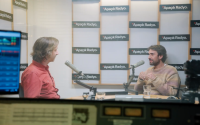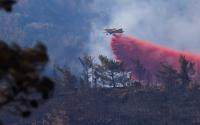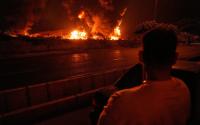30 July, 2002
The former United Nations chief arms inspector in Iraq, has for the first time publicly accused the US and other countries of manipulating the missions for their own political ends.
Swedish diplomat Rolf Ekeus, speaking on Swedish Radio, said the US had sought information about how the Iraqi security services were organised.
They were also trying to dig up intelligence on the whereabouts of the Iraqi leader, Saddam Hussein, Mr Ekeus said.
Allegations of manipulation have been made in the past, notably by the Baghdad government itself.
Mr Ekeus ran Unscom - the UN weapons inspection mission in Iraq - from 1991 to 1997.
He said that initially the US and other countries were solely interested in ensuring that Iraq was not producing weapons of mass destruction, but as time went on that changed.
Tracking Saddam
He said there was no doubt the US wanted to influence the inspections to further what he called "certain fundamental US interests".
He said the Americans were interested in areas that were clearly outside the Unscom mandate.
He added that they were keen on tracking Saddam Hussein's movements, which he pointed out "could be of interest if one were to target him personally".
Mr Ekeus also said attempts were made to provoke crises which could then, as he put it, "form the basis for direct military action".
Searches halted
Similarly, he said there had been situations when the inspection teams might have conducted tough searches, but they were blocked.
"They were put under pressure from the US to halt them as, all of a sudden, a confrontation was no longer wanted, owing to wider political interests in the game."
He said other members of the UN Security Council - including the Russians - also tried to manipulate Unscom's work.
But Mr Ekeus added that external attempts to pressure him were not successful.
'No evidence of threat'
Mr Ekeus' revelations will strengthen claims by the Iraqi Government that it has not been treated fairly and that the UN is not an impartial player.
The UN inspectors left Iraq at the end of 1998, and the Iraqis have refused to allow them back.
Talks between Iraq and the United Nations to set up a new weapons inspection regime have so far come to nothing.
Amid growing speculation that the US is planning to attack Iraq another former UN weapons inspector, Scott Ritter, has said there is no evidence that Saddam Hussein poses a threat to the rest of the world.
Mr Ritter said military forces were already being deployed for a conflict which could engulf the entire Middle East.






